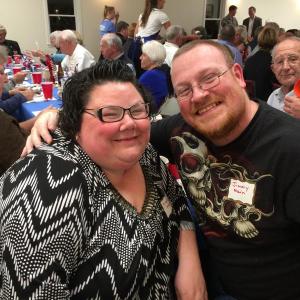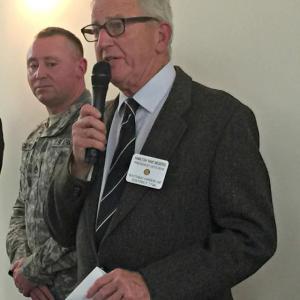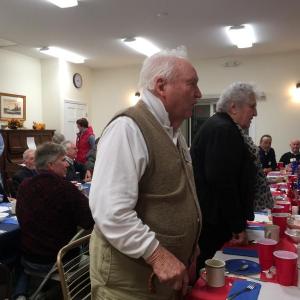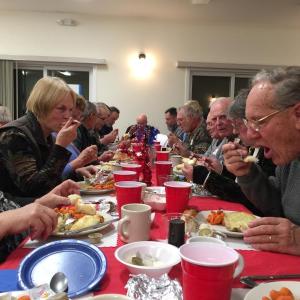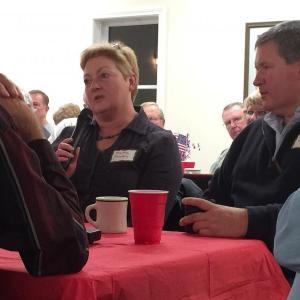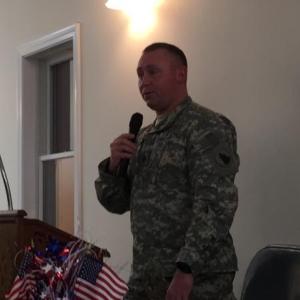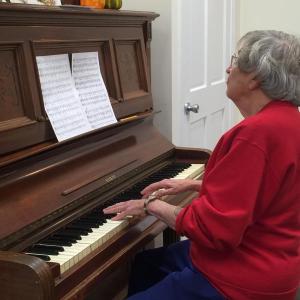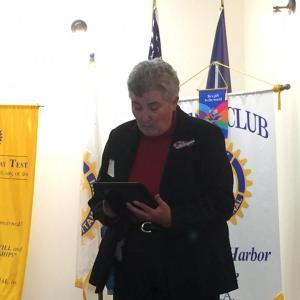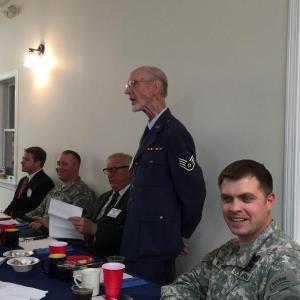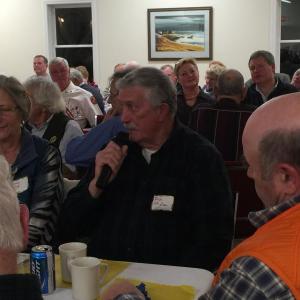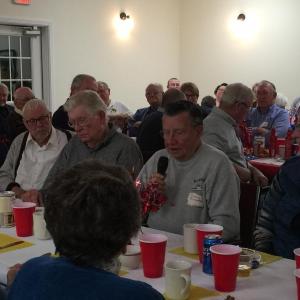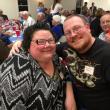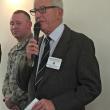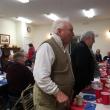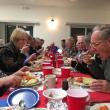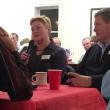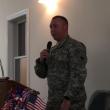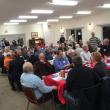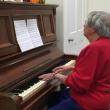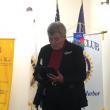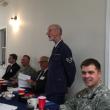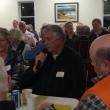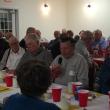Tenth annual Veterans Appreciation night at Rotary Club
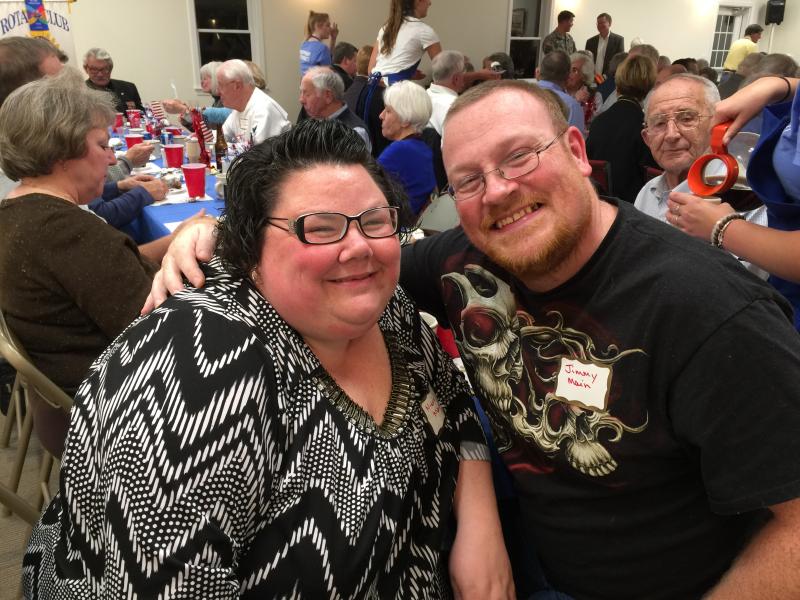 Nicole and Jimmy Main at the 10th annual Veterans Appreciation dinner at the Rotary Club. Jimmy served in the Army from 1996 through 1998, serving in the 46th engineering battalion. They recently celebrated 17 years together. KATRINA CLARK/Boothbay Register
Nicole and Jimmy Main at the 10th annual Veterans Appreciation dinner at the Rotary Club. Jimmy served in the Army from 1996 through 1998, serving in the 46th engineering battalion. They recently celebrated 17 years together. KATRINA CLARK/Boothbay Register
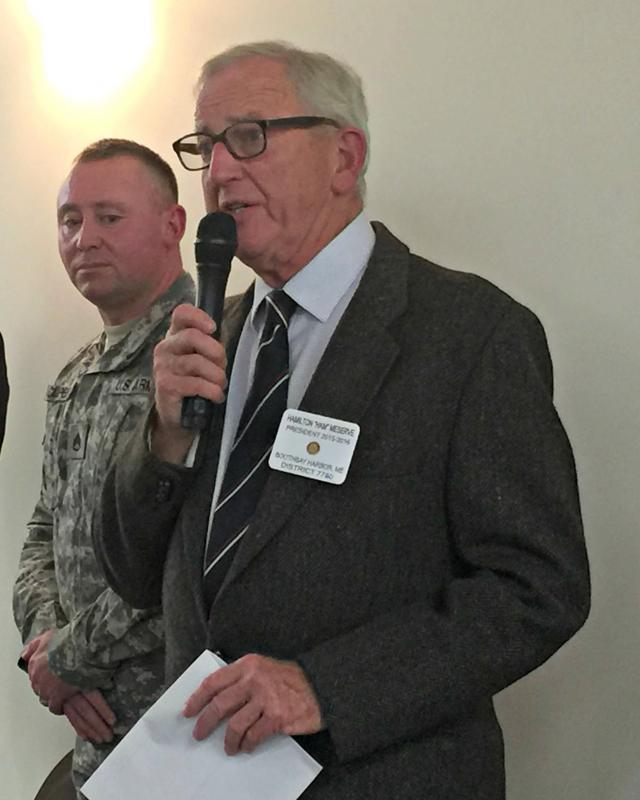 Rotary President Ham Merserve welcomed everyone to the dinner and asked everyone to be seated, as traditionally the president is fined $1 for every minute past 6:30 the dinner begins. KATRINA CLARK/Boothbay Register
Rotary President Ham Merserve welcomed everyone to the dinner and asked everyone to be seated, as traditionally the president is fined $1 for every minute past 6:30 the dinner begins. KATRINA CLARK/Boothbay Register
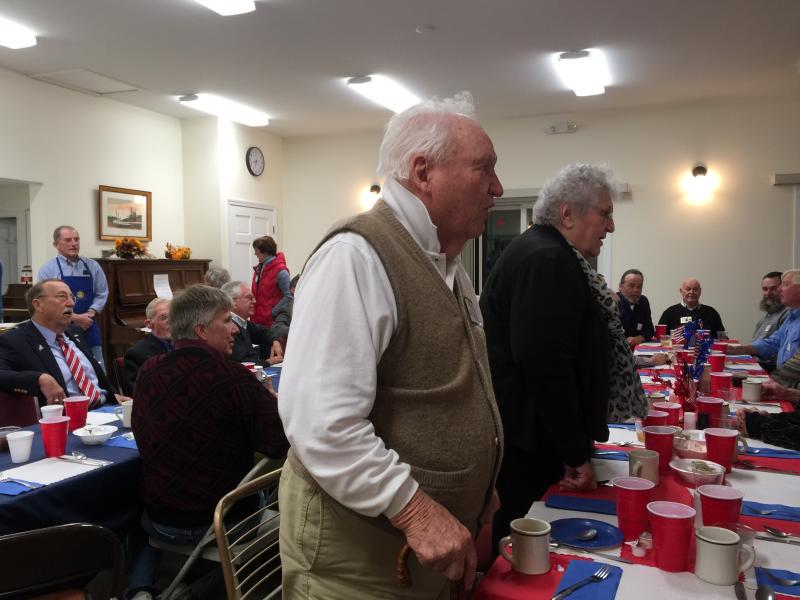 John Druce, who served in the Marine Corps for four years starting in 1942, spoke about having to move frequently from station to station including being posted on both Okinawa and Guam. He said he attends church every Sunday, because “Someone took care of me those years. I am one lucky guy.” KATRINA CLARK/Boothbay Register
John Druce, who served in the Marine Corps for four years starting in 1942, spoke about having to move frequently from station to station including being posted on both Okinawa and Guam. He said he attends church every Sunday, because “Someone took care of me those years. I am one lucky guy.” KATRINA CLARK/Boothbay Register
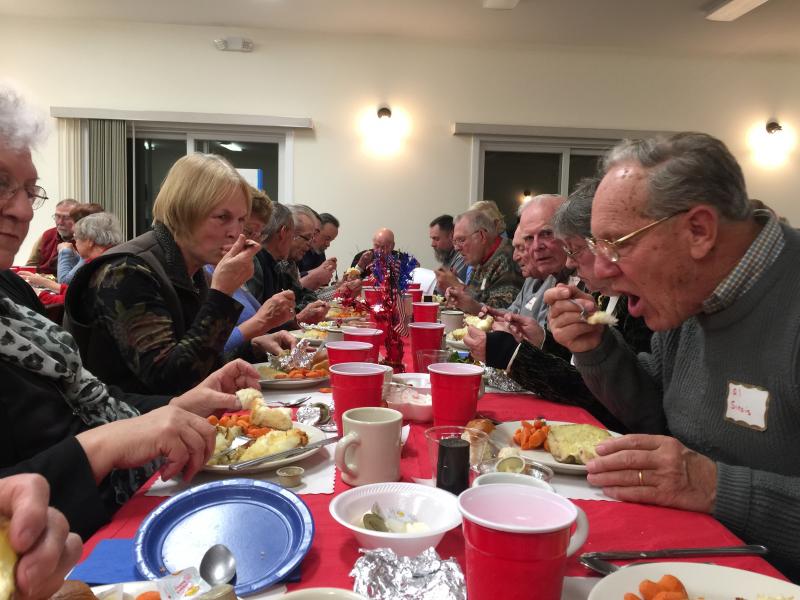 Dinnertime at the Rotary Club’s Veterans Appreciation dinner. KATRINA CLARK/Boothbay Register
Dinnertime at the Rotary Club’s Veterans Appreciation dinner. KATRINA CLARK/Boothbay Register
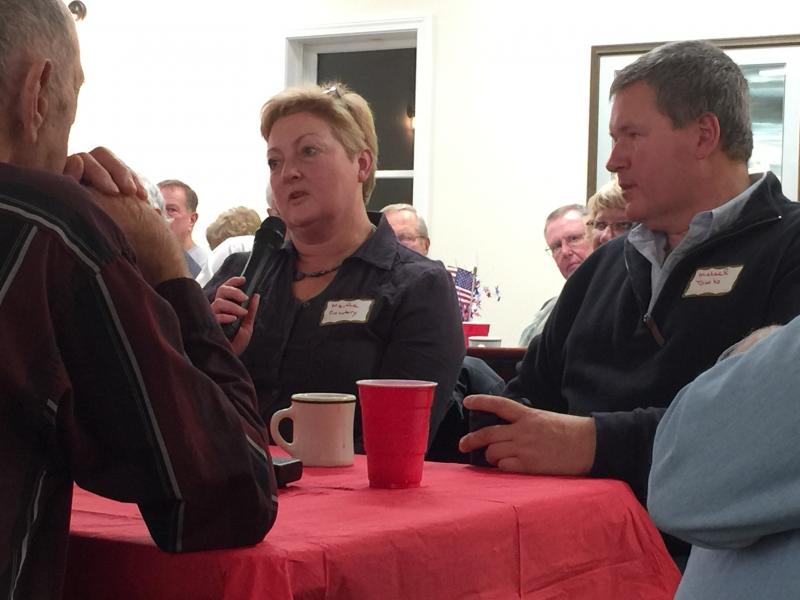 Navy Veteran Martha Cowdery speaks at the Rotary's veterans dinner as her companion Mike Tomko looks on. KATRINA CLARK/Boothbay Register
Navy Veteran Martha Cowdery speaks at the Rotary's veterans dinner as her companion Mike Tomko looks on. KATRINA CLARK/Boothbay Register
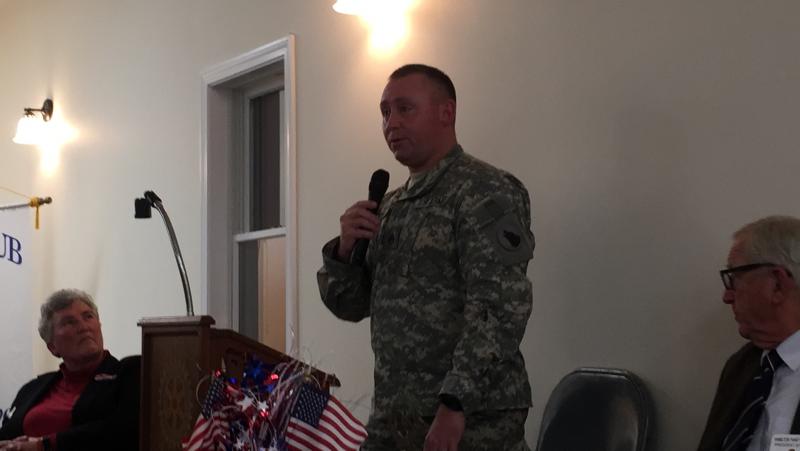 SSG Bernard Campbell, who served from 1992 to 2000, speaks about his family’s legacy of service. Today he is a Maine State Trooper and serves in the Army Reserve. KATRINA CLARK/Boothbay Register
SSG Bernard Campbell, who served from 1992 to 2000, speaks about his family’s legacy of service. Today he is a Maine State Trooper and serves in the Army Reserve. KATRINA CLARK/Boothbay Register
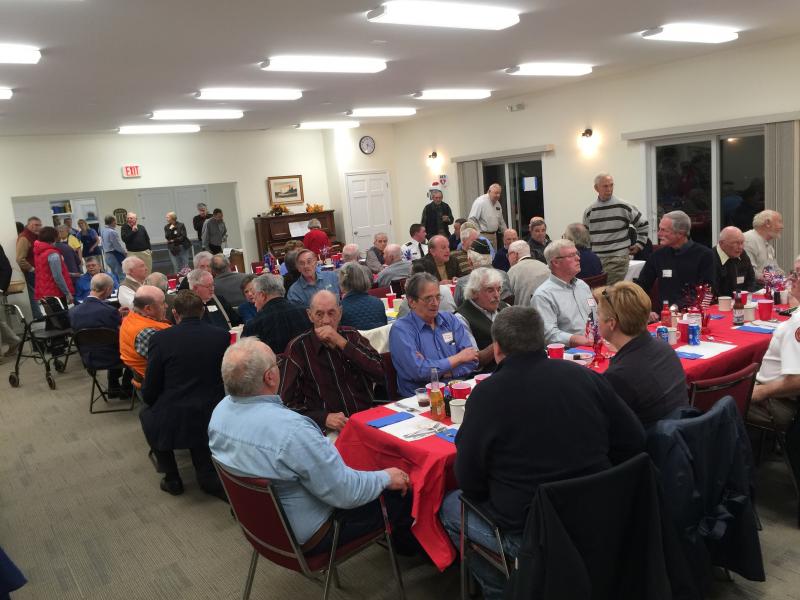 KATRINA CLARK/Boothbay Register
KATRINA CLARK/Boothbay Register
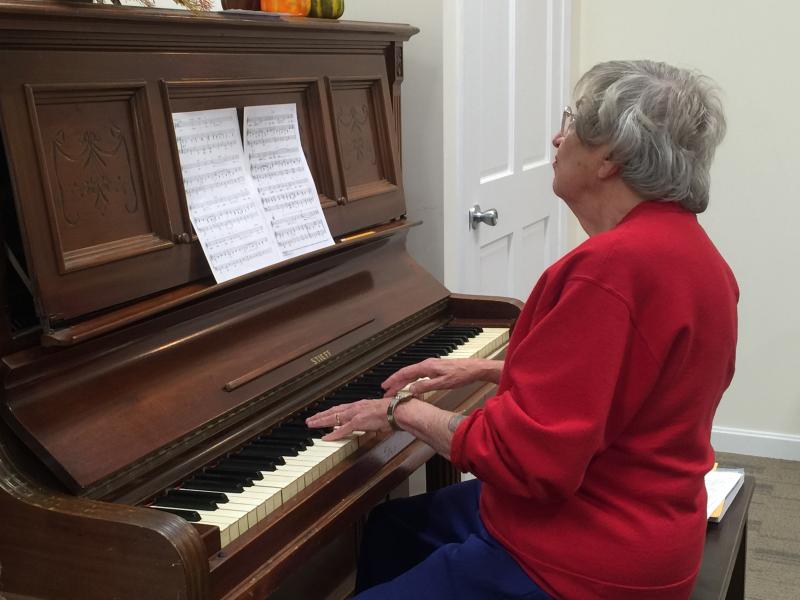 KATRINA CLARK/Boothbay Register
KATRINA CLARK/Boothbay Register
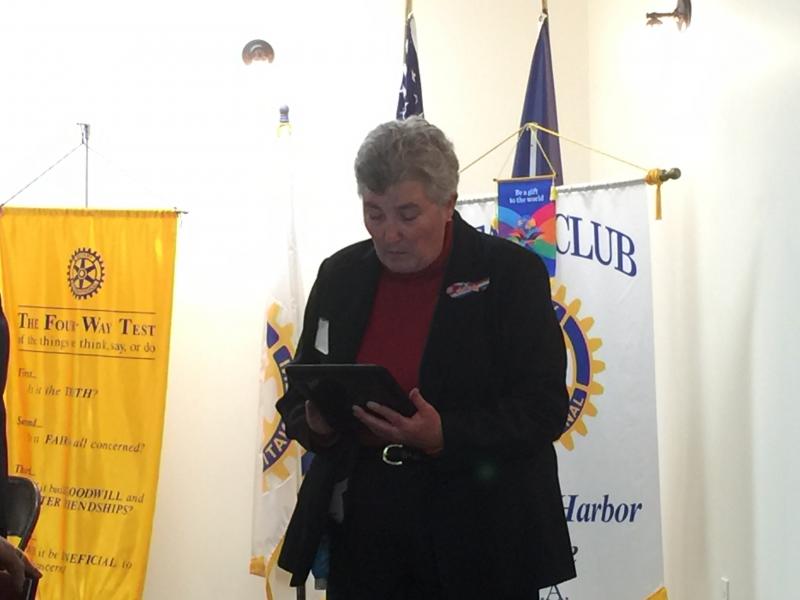 KATRINA CLARK/Boothbay Register
KATRINA CLARK/Boothbay Register
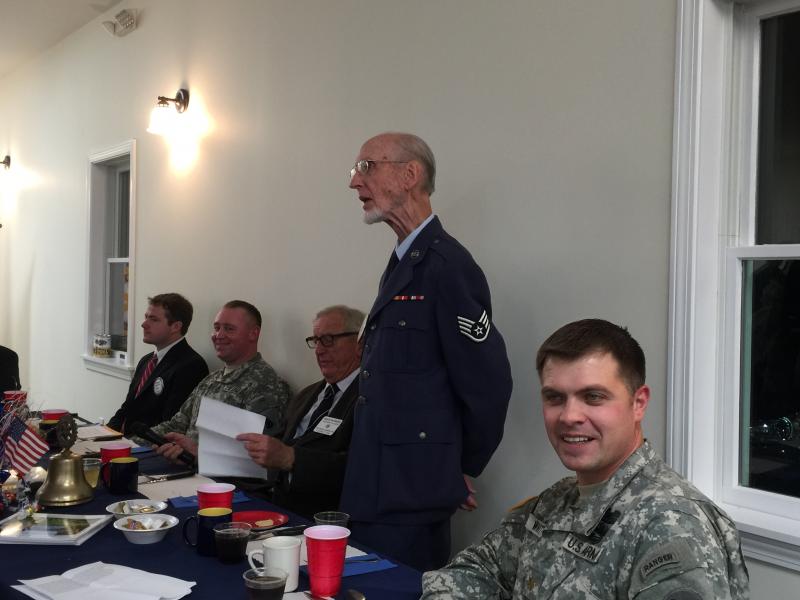 KATRINA CLARK/Boothbay Register
KATRINA CLARK/Boothbay Register
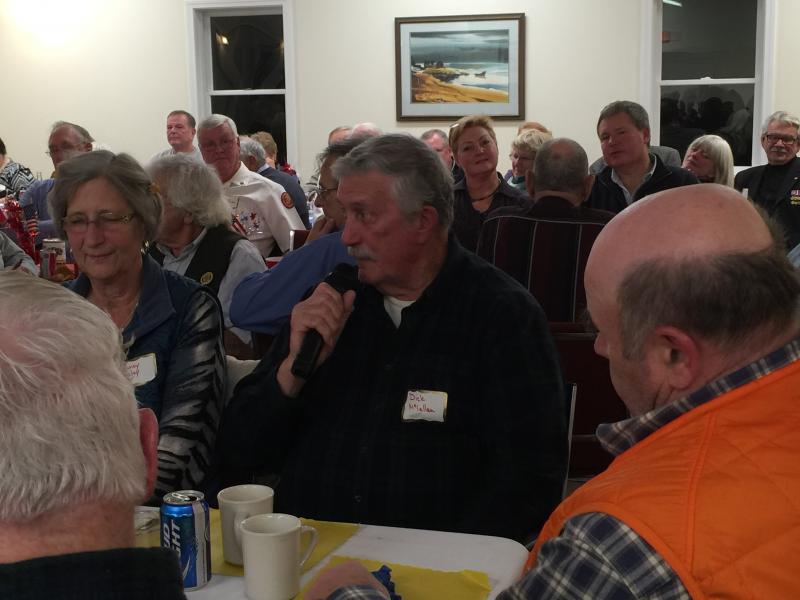 KATRINA CLARK/Boothbay Register
KATRINA CLARK/Boothbay Register
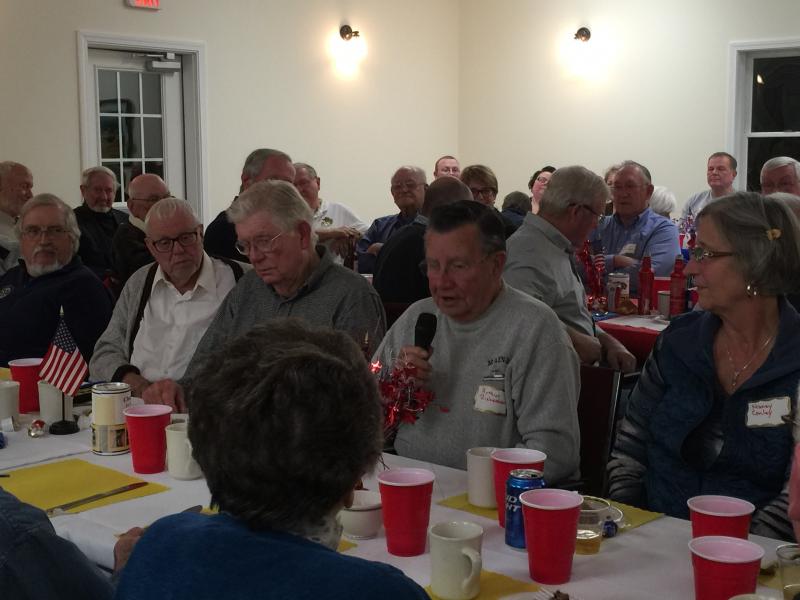 KATRINA CLARK/Boothbay Register
KATRINA CLARK/Boothbay Register
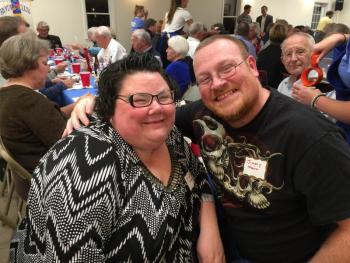 Nicole and Jimmy Main at the 10th annual Veterans Appreciation dinner at the Rotary Club. Jimmy served in the Army from 1996 through 1998, serving in the 46th engineering battalion. They recently celebrated 17 years together. KATRINA CLARK/Boothbay Register
Nicole and Jimmy Main at the 10th annual Veterans Appreciation dinner at the Rotary Club. Jimmy served in the Army from 1996 through 1998, serving in the 46th engineering battalion. They recently celebrated 17 years together. KATRINA CLARK/Boothbay Register
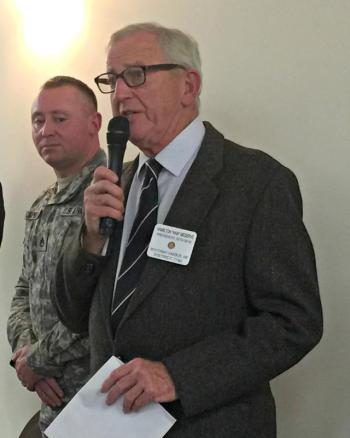 Rotary President Ham Merserve welcomed everyone to the dinner and asked everyone to be seated, as traditionally the president is fined $1 for every minute past 6:30 the dinner begins. KATRINA CLARK/Boothbay Register
Rotary President Ham Merserve welcomed everyone to the dinner and asked everyone to be seated, as traditionally the president is fined $1 for every minute past 6:30 the dinner begins. KATRINA CLARK/Boothbay Register
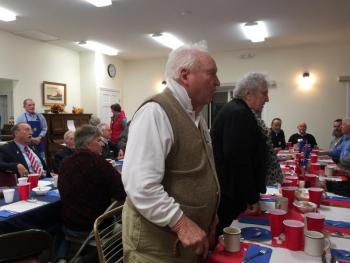 John Druce, who served in the Marine Corps for four years starting in 1942, spoke about having to move frequently from station to station including being posted on both Okinawa and Guam. He said he attends church every Sunday, because “Someone took care of me those years. I am one lucky guy.” KATRINA CLARK/Boothbay Register
John Druce, who served in the Marine Corps for four years starting in 1942, spoke about having to move frequently from station to station including being posted on both Okinawa and Guam. He said he attends church every Sunday, because “Someone took care of me those years. I am one lucky guy.” KATRINA CLARK/Boothbay Register
 Dinnertime at the Rotary Club’s Veterans Appreciation dinner. KATRINA CLARK/Boothbay Register
Dinnertime at the Rotary Club’s Veterans Appreciation dinner. KATRINA CLARK/Boothbay Register
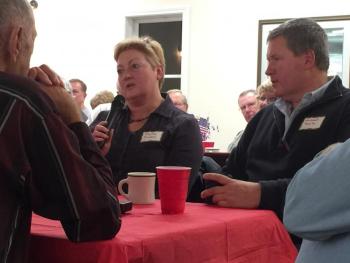 Navy Veteran Martha Cowdery speaks at the Rotary's veterans dinner as her companion Mike Tomko looks on. KATRINA CLARK/Boothbay Register
Navy Veteran Martha Cowdery speaks at the Rotary's veterans dinner as her companion Mike Tomko looks on. KATRINA CLARK/Boothbay Register
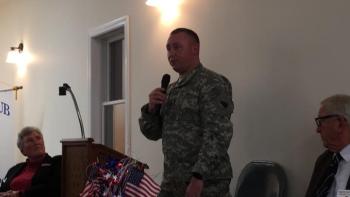 SSG Bernard Campbell, who served from 1992 to 2000, speaks about his family’s legacy of service. Today he is a Maine State Trooper and serves in the Army Reserve. KATRINA CLARK/Boothbay Register
SSG Bernard Campbell, who served from 1992 to 2000, speaks about his family’s legacy of service. Today he is a Maine State Trooper and serves in the Army Reserve. KATRINA CLARK/Boothbay Register
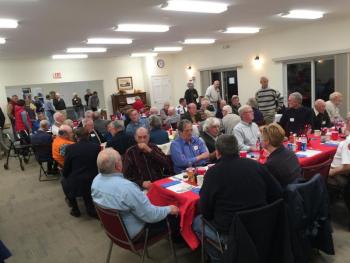 KATRINA CLARK/Boothbay Register
KATRINA CLARK/Boothbay Register
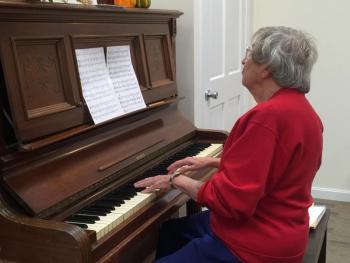 KATRINA CLARK/Boothbay Register
KATRINA CLARK/Boothbay Register
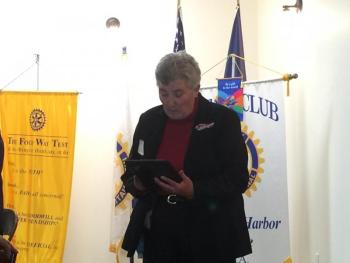 KATRINA CLARK/Boothbay Register
KATRINA CLARK/Boothbay Register
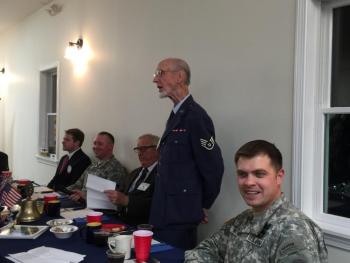 KATRINA CLARK/Boothbay Register
KATRINA CLARK/Boothbay Register
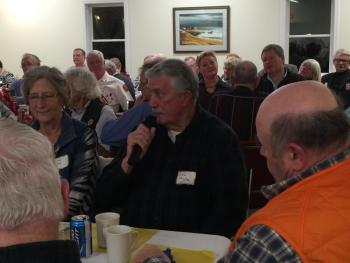 KATRINA CLARK/Boothbay Register
KATRINA CLARK/Boothbay Register
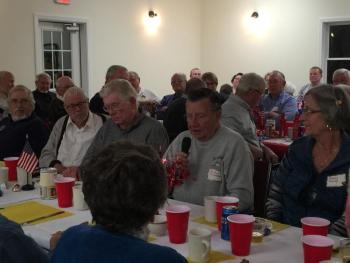 KATRINA CLARK/Boothbay Register
KATRINA CLARK/Boothbay Register
Veterans from the five main branches of the United States military – Army, Navy, Marines, Coast Guard and Air Force – were honored at the tenth annual Rotary Club Veterans Night, held Nov. 12 at the new hall located on Montgomery Road.
The crowds came early, with the parking lot at the hall filling up early and cars parked up and down Montgomery to either end. Doug Roberts, guest and owner of Oak Street Provisions, said he had been tempted to park at Hannaford and walk.
Viv Daniels played the piano as the guests mingled and swapped stories. Before dinner, the guests followed the tradition of singing the official song of each military branch: For the Army, “The Army Goes Rolling Along,” Navy, “Anchor's Aweigh,” Air Force, “The U.S. Air Force,” Marine Corps, “The Marines' Hymn,” and the Coast Guard, “Semper Paratus (Always Ready).”
There were some problems with remembering all the words, so Rotary President Ham Meserve promised that next year, there would be slides with the words on them.
Meserve welcomed all the attendees and asked for 30 seconds of silence to honor World War II Navy veteran Bob Zimmerli, who passed away on Nov. 5. Meserve then welcomed all those in attendance, and asked Pastor Ami Sawtelle, a veteran herself, to give the evening's invocation.
A total of 110 people were served a dinner of baked haddock with potatoes and carrots, and blueberry cake for dessert. The meal was prepared by chef Kim Mills, and served by the Interact Club from Boothbay Region High School. The microphone was passed around the room and each veteran had a chance to introduce themselves and speak briefly about their years of service.
The guest speaker for the night was SSG Bernard Campbell, who served from 1992 to 2000 and fought in Bosnia and Kosovo during his service. Today he is a Maine State Trooper and serves in the Army Reserve.
Campbell spoke about being a freshman in high school and being assigned a paper about a conflict. It was suggested to the students that they speak to veterans. Campbell said he found inspiration at home as his grandfather had fought in World War I, though he rarely talked about it. Campbell asked if he would speak to him about it, and after a rather awkward pause, his grandfather told him no and changed the subject.
After some family intervention, Campbell's grandfather agreed to the interview. He spoke about the hellish conditions of trench warfare, where soldiers squatted for weeks on end in the cold mud, as snipers on either side picked off anyone who showed their head above the trenches. He spoke about cold so bitter that frostbite was a constant companion.
Campbell also related a story that was undoubtedly hard for his grandfather to share, where his childhood friend had talked about “just standing up and the pain would be gone.” Then one day he made his friend a cup of coffee to keep warm, then they shared a cigarette together. After he was done his friend thanked him and stood up.
Unable to get to him in time because of the stiffness in his legs, his friend was lost to the bullet from a German sniper. Campbell related to the audience how his grandfather had cried when telling him about it, and Campbell's eyes could be seen welling up as he remembered.
He asked those attending to never forget the sacrifice of those who have served, both those who made it back and those who did not. He urged people to support the troops after they return home, and how working for the Maine State Police, he often has to deal with veterans who have trouble after returning from deployment.
“We need to have each other’s backs just as we did while deployed and serving. We as veterans know our brothers and sisters and can see when they are struggling and need to lend a hand and get them help,” Campbell said.
Event Date
Address
United States

